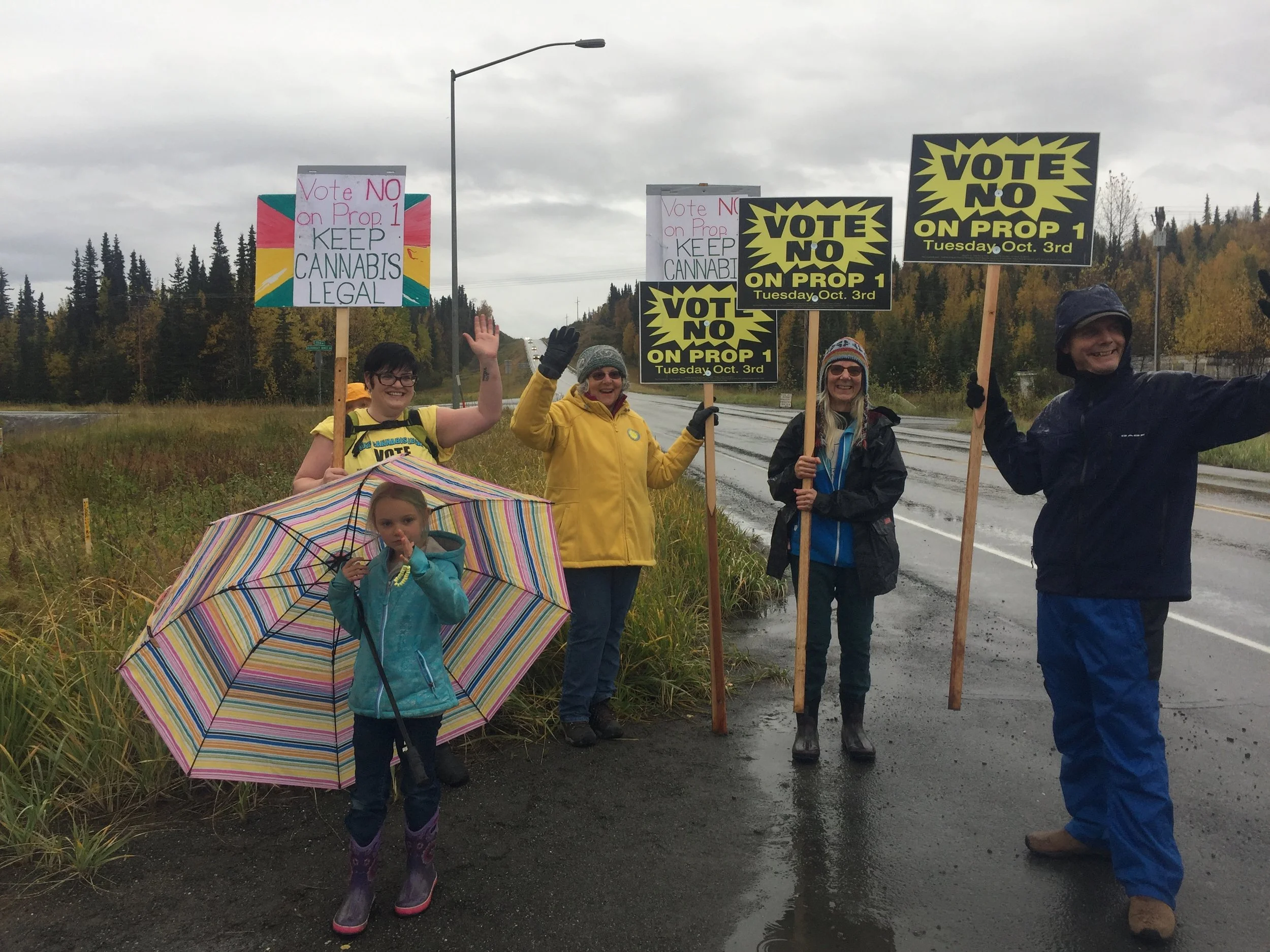Budding Industry: The Fight to Keep Cannabis Legal
Budding Industry: The Fight to Keep Cannabis Legal
By Whitney Branshaw
Photos by Holly Abel and Steve Waldron
It’s 9:43 p.m. on Sunday, October 1 as I finally sit down to write this piece in hopes of keeping cannabis legal in two of Alaska’s top producing areas for legal cannabis. Time has gotten away from me once again and I realize there is no choice but to stay up and write through the night.
On the homepage of the “Keep Cannabis Legal” campaign website they have a countdown clock that is ticking towards the borough-wide commercial cannabis ban vote. It reads one day and 22 hours. It’s getting down to the wire. On October 3, voters in the Kenai Peninsula Borough (KPB) as well as the city of Fairbanks, and the Fairbanks North Star Borough (FNSB), will vote on whether or not to continue to allow the operation of legal commercial cannabis businesses in their communities.
Chevelle and Art Abel, co-founders of Greatland Ganja sign wave with their family. If the ban vote goes through, the Abels would have to shutter the doors of their legal cannabis business.
In 2014, when we legalized recreational cannabis in the state of Alaska through Proposition 2, we also voted for language within the proposition that allowed any community in Alaska to opt out of legal weed. That means that through local government any Joe Schmo can get their panties in a bunch and blaze a trail of reefer madness by advocating for the unfounded evils of the devil’s lettuce, aiming to thwart the legal cannabis industry in our state.
Exactly one year ago today I wrote an article about the efforts of prohibitionists behind these initiatives that have made their way to the ballot in real time. Over the first year of legal cultivation, manufacturing and sales, the KPB and FNSB are now two of our largest producers of legal cannabis. Each community represents hundreds of people, including entire families that would be negatively impacted by shutting down the legal cannabis industry. If these initiatives are successful both communities will not only lose the safety and accountability of the legal cannabis industry, but they’ll also lose tax revenue and the economic stimulus it provides to other non-cannabis related small businesses throughout the area. Think contractors, electricians, construction workers, security firms, plumbers, painters, the list goes on. The abrupt end of the safe and successful legal industry would also make way for a large resurgence of the already ever-present black market side of the industry. The black market is alive and well in Alaska and without legal access that fire will end up burning even brighter.
The KPB Proposition 1 intends to criminalize all commercial cannabis business within the KPB, as well as the incorporated city limit. If passed, communities like Seward, Kasilof, Sterling and Funny River would have to cease business operations within 90 days and shutter their windows. The interesting part of this initiative is that it doesn’t aim to end the use or sales of legal cannabis. That’s right folks, you can buy it and you can smoke it, but you wouldn’t be able to legally grow commercial cannabis, funneling thousands upon thousands of dollars to other communities that would end up supplying product to legal retail stores. Only those who are outside a given city’s limit are allowed to vote on prop 1, making it even more important for those that can vote, to vote.
Jan Waldron and Ann Fraser sign waving in Kasilof.


